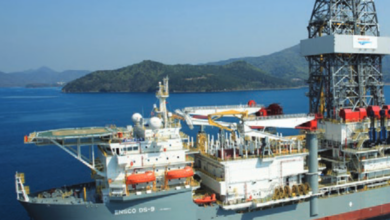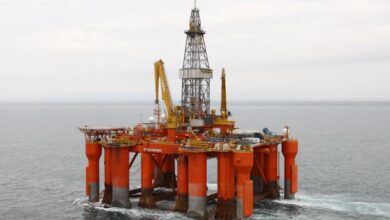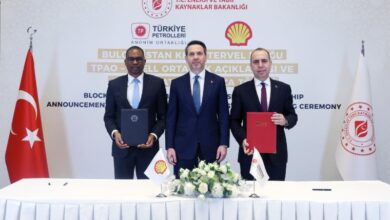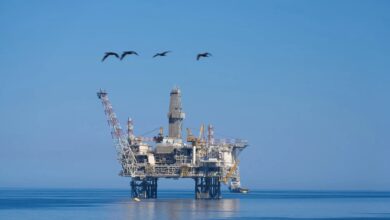Companies must take public health, personal liberties into consideration when formulating COVID-19 vaccine policies, says industry panel
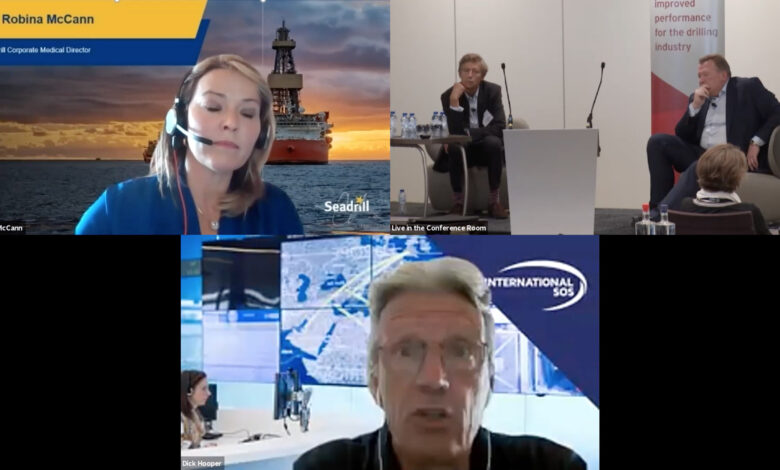
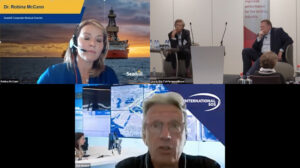
By Stephen Whitfield, Associate Editor
A wide range of COVID-19 vaccines have been authorized for use around the world. This has raised many new questions for drilling contractors and operators about the degree to which they should be involved in vaccination efforts, and whether the management of vaccinated people in the workplace could and should differ from unvaccinated people.
“For us as an industry, do we create a policy of mandatory vaccination? Some countries have taken the initiative on our behalf and said you cannot go into a public place or a workplace unless you’re fully vaccinated, but it’s clearly an issue for us to work through the ethics around it,” said Dick Hooper, Global Health Advisor at International SOS, a health and security service company.
Vaccines are just one part of a series of barriers to prevent a COVID-19 outbreak among a company’s personnel and mitigate the damage should an infection happen on a project site, according to Dr Hooper. In addition to vaccines, he said it was important for companies to make sure that the “non-pharmaceutical” barriers – such as social distancing and wearing face masks – are enforced on a worksite.
Speaking at the IADC HSE and Sustainability Europe Conference on 16 September, Dr Hooper outlined a “Swiss Cheese Model” of barriers against COVID-19, where each barrier has a certain level of vulnerabilities (like holes in Swiss cheese) that can easily allow infection to break through in isolation but are much less likely to allow infection when combined with other barriers. These barriers include:
- awareness of risk and measures to prevent infection;
- vaccination;
- behaviors such as social distancing, mask wearing and limiting contact with others;
- maintaining clean surfaces;
- ensuring proper ventilation through open windows and air conditioning filters, and installing physical barriers, such as clear screens, between people onsite;
- personal protective equipment;
- isolation, quarantine, testing and contact tracing; and;
- treatment.
No COVID vaccine is 100% effective in stopping infection entirely, but they all significantly reduce the likelihood of infection. They also help to reduce the severity of breakthrough infections and the likelihood of hospitalization. Dr Hooper cited a 2021 study published in The Lancet, a science journal, stating that the odds of a fully vaccinated person who catches COVID-19 ending up hospitalized with severe symptoms were reduced by more than 66% compared with an unvaccinated patient. Also, the risk of breakthrough patients suffering from long COVID, with symptoms lasting more than a month, were cut 50% among fully vaccinated people compared to people who have received one dose of a vaccine.
“It seems that these vaccines are provoking a cell response that is quite an adaptive response. So, even if you do get a breakthrough infection and you have the vaccine, the T-cells seem to be able to mount a very quick immune response,” Dr Hooper said.
Vaccine mandates
Worldwide COVID-19 vaccination rates are lagging. As of 14 December, 44.5% of the global population was fully vaccinated according to the World Health Organization.
Hans Berg, Regional Manager Health (RMH) for Europe, Russia and the CIS and Interim RMH for the Middle East and Africa at Shell, noted a “general and fast-moving trend” among governments to consider vaccine mandates. However, while some countries have issued a partial covering specific sectors, very few have issued nationwide mandates. On 19 November, Austria became the first European country to make COVID-19 vaccination compulsory for all adults – should the mandate pass the mandate will take effect on 1 February.
Within the oil and gas industry, Dr Berg pointed out different factors companies should take in handling vaccine mandates among their personnel. One such factor is risk: Dr Berg said that offshore operations in remote settings, where personnel live in closely congregated quarters and access to hospital care is not directly available, bear greater risk for a COVID outbreak than other locations.
Also, inequities in vaccine distribution between high- and low-income countries may affect efforts to mandate vaccines for personnel within the oil and gas industry. According to the Global Dashboard for Vaccine Equity – established by the United Nations, the WHO and Oxford University – only 8.35% of people vaccinated with at least one dose come from low-income countries, or countries with less than $1,035 gross net income (GNI) per capita, as of 8 December. On the other hand, high-income countries (more than $12,615 GNI per capita) account for 64.94% of global vaccinations.
A precondition for contemplating a vaccine mandate for personnel in a specific locality is determining whether that locality is “privileged enough that vaccination is available and accessible,” Dr Berg said. Operators and drilling contractors with operations in low-income countries should tailor their vaccine policies to help the larger community. For instance, he noted that companies can work with governments to help procure and distribute vaccines, while also securing a portion of available vaccines for their frontline workers.
“This inequity is not just a moral issue,” Dr Berg said. “There are deep seated logistical issues in low-income countries, as well as a lot of vaccine hesitancy. Drilling companies, especially those with operations in low-income countries, should be able to help with vaccination coverage. It is no different from other diseases for which we have really good vaccinations. The same principle applies: The vaccine is only really effective if everyone gets it.”
Crafting a policy
Given the lack of consensus around vaccine mandates globally, Dr Berg stressed the need for companies to be flexible in structuring their own policies in managing COVID-19: “As businesses, we are all responsible for respecting privacy and on the right to non-discrimination,” Dr Berg said. “However, human rights aren’t absolute. When human rights are restricted, there is an onus on the business, or usually a government, to ensure that the restriction is necessary, reasonable, proportionate and transparent,” he said.
Olav Skar, Safety Director at the International Association of Oil and Gas Producers (IOGP), said that COVID-19 mitigation strategies do not necessarily exist on a vaccine/non-vaccine binary. “The vaccine is highly successful from a personal health perspective and from a public health perspective, so in my world, it’s a no-brainer.” However, other methods of prevention like face coverings can be another useful tool, although it’s most effective when everyone wears one. “Everything can fit into a hierarchy where you can meaningfully make decisions.”
Oil and gas industry associations can play a crucial role in establishing the framework for consensus on vaccine policies within the industry, Mr Skar said. To this end, he pointed to the IOGP-IPIECA Health Committee’s statement on COVID-19 testing, which outlined different types of tests, processes for screening and quarantining asymptomatic personnel within a facility, and the considerations companies should take when considering a change in protocols for vaccinated personnel. He also noted that the IOGP has engaged in several other conversations with industry regulators and trade associations about COVID-19 protocols.
“We feel we have contributed to our industry managing this pandemic,” Mr Skar said. “We’ve kept our cadence going, discussing things that help out industry move forward, sometimes just testing ideas, sometimes just being a place of solace in a harsh and busy work environment for our health professionals. We’ve reached out to many stakeholders and what we’ve found is that they were all wiling and keen to help guide our industry. We’re working collaboratively like we have never done before.”

